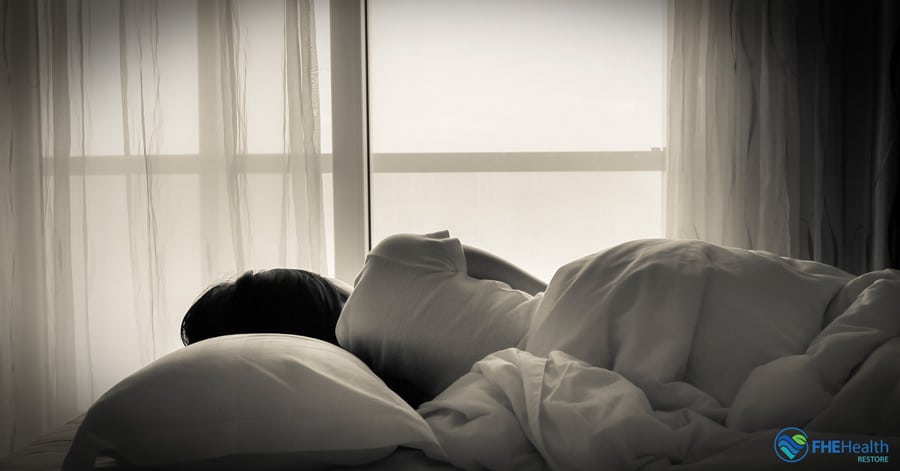Depression is a condition that affects people from all walks of life. It’s estimated that in 2020, at least 2.1 million U.S. adults experienced at least one major depressive episode. When someone is living with depression, it can feel insurmountable, but help is available, and it is possible to recover. Here, we’ll explore the answers to some common questions, such as can depression go away and how long does depression last?
How Long Does Depression Last?
If you or someone you care about is currently battling depression, it’s natural to wonder whether there will ever be better days. How long can depression last? To answer that question, we first need to understand what depression is and how it works.
For someone to be diagnosed with depression, they must exhibit at least five of the symptoms of depression on a daily basis for a 2-week period. Symptoms of depression include:
- A loss of interest in activities they previously enjoyed
- Feelings of sadness, hopelessness or tearfulness
- Frequent mood swings, angry outbursts or irritability
- A disturbance to their sleeping patterns
- Increased or decreased appetite
- Feeling anxious, agitated or restless
- Becoming withdrawn from friends and loved ones
- Difficulty concentrating, making decisions or remembering things
- Frequent thoughts of death or suicide
- Pain or illness that doesn’t appear to have a cause
How long depression lasts can depend on several factors, including the type of depressive disorder the person has and what treatment they receive for it. Depression can be recurring, and most people who are diagnosed with depression experience more than one depressive episode during their lives.
While some depression can be managed with medication, this is not always the case. Not all cases of depression respond to medication, and in the case of a relatively mild bout of depression, it may help to try lifestyle changes and therapy before using medication because of the risk of side effects. Every case is different, and you should talk to your care provider about what’s right for you.
What Affects How Long Depression Lasts?
There are several factors that can impact how long depression lasts. It’s not uncommon for a depressive episode to last for between 6 and 8 months. However, some people find their episodes pass more quickly, while others may experience chronic or recurring depression.
The cause and type of the depression is a major factor in determining how long it might last. For example, seasonal affective disorder usually appears in the winter but goes away when the days get longer and brighter. This kind of depression is quite commonplace, affecting an estimated 5% of the U.S. population. Those who are living with major depressive disorder may find they’re more likely to experience bouts of depression during stressful or traumatic life events or if there’s another trigger such as substance abuse. Any episodes of depression may be shorter and occur less frequently when they are not stressed and have access to a good social support network.
Those who are diagnosed with major depressive disorder may benefit from learning what is most likely to trigger episodes of depression in their case. Some common risk factors for depressive episodes include:
- Other mental health disorders
- Substance abuse
- Past trauma
- Recent traumatic events
- Loss of a loved one
- Stress
- Lack of a support network
- Cognitive patterns
- Personality
While some of those risk factors are difficult to change, others can be managed. Someone who has a history of drug or alcohol abuse may find that they’re able to manage both issues more successfully by getting support for addiction and their depression. Therapy may help some people who are prone to depression form new cognitive patterns that help them manage their condition.
Will Depression Resolve on Its Own?
Some types of depression, including mild episodes of depression and ones with a specific trigger such as postpartum depression or seasonal affective disorder, can resolve themselves on their own. Other varieties of depression may require support from a professional, either in the form of counseling or inpatient mental health treatment. Depending on the type of depression, the treatment may include psychotherapy and medication.
While it is common for depression to lessen over time, it’s important to be mindful of the impact on your day-to-day life. If you’re struggling to eat or sleep or are finding it difficult to focus and function in everyday life, those issues should not be overlooked. With help, it may be possible to find strategies to cope with your depression in the short term while you try to find a resolution for the underlying issue and long-term recovery.
What to Do If You Feel Like Your Depression Never Fades
Does depression ever go away? You can find some comfort in knowing that the answer is yes, but it can be difficult to believe it will go away when you’re in the midst of it and you may need professional help to address it. Finding people who can support you during this time could make it easier to face the challenges depression puts in front of you.
That support network could be in the form of friends and family or local organizations that have expertise in supporting individuals who are dealing with mental health challenges. Always remember that depression is a condition that touches millions of people of all ages and from all demographics, and it’s not always obvious to an outsider who is faced with it.
At Restore Mental Health, we understand how difficult it can be to live with depression. We offer a variety of mental health services to help people get back on track and live the life they want to live. Whether you’ve been formally diagnosed with depression or are struggling to cope with the demands of day-to-day life, our team can help you. We’re here to support you; contact us today to talk with our compassionate and highly trained team.



